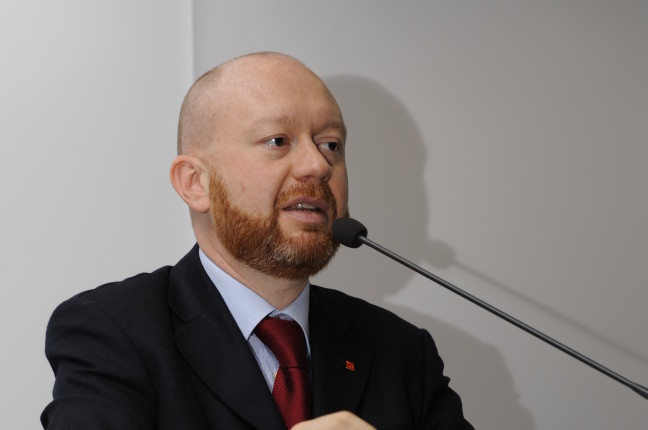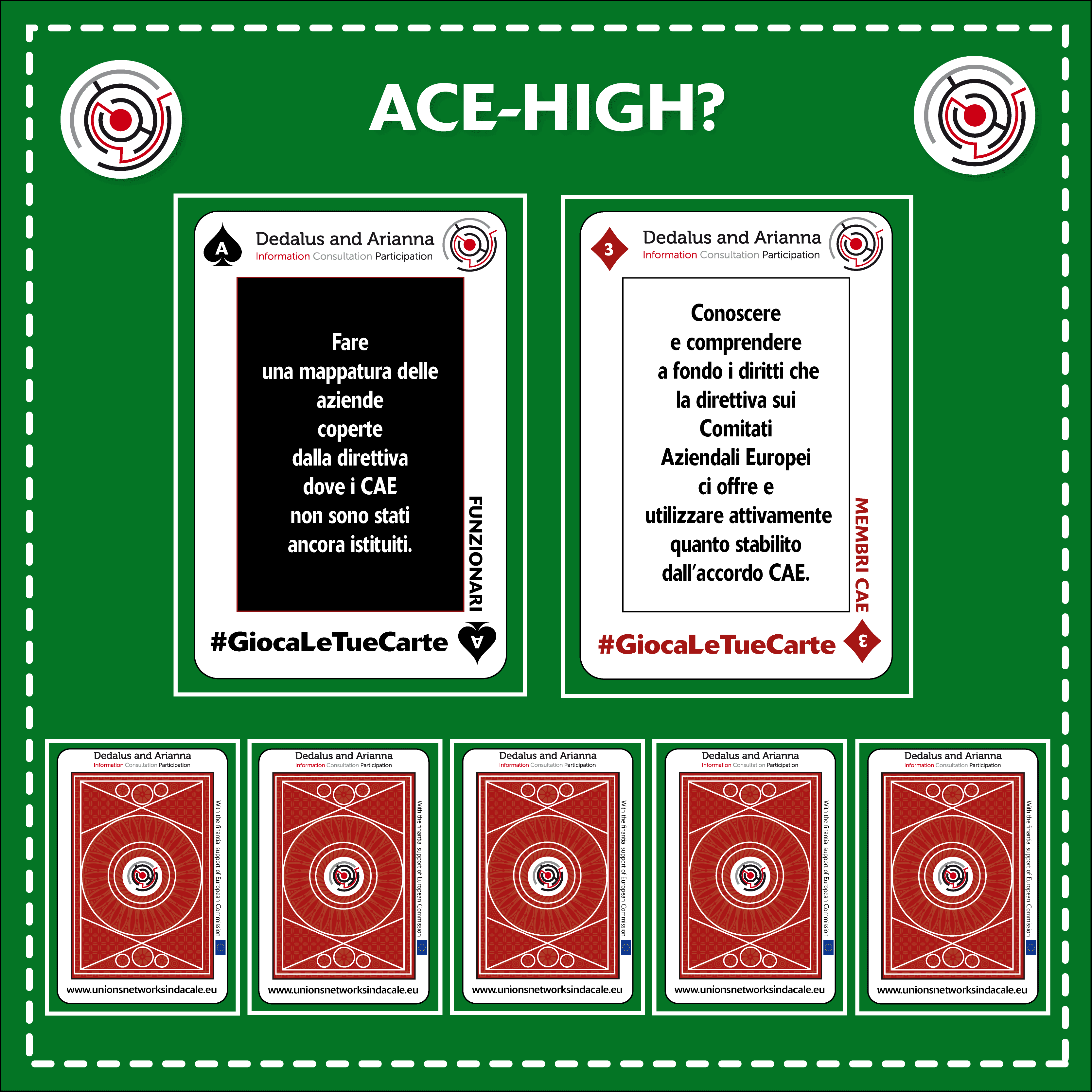

A favourable stellar configuration – this is how Massimo Mensi describes circumstances that led him to EWC. When he was reading social studies, his professor included European Works Councils in the curriculum. Today, as a Filcams officer, Mensi is dealing with companies 90% of which are multinational organisations. “This requires a whole new approach to trade union activities,” he adds.
Why should we formulate trade union strategies differently for EWCs?
In order to stimulate our ability to anticipate changes. I believe that this trait is embedded in the nature of EWCs. It is its cornerstone on which we may build our future ambitions. Information provided by delegates gives us the competitive advantage in negotiations, what may have a very beneficial impact on the second level of collective bargaining. Being able to rely on support offered by EWC members helps us interpret decisions of the company and read the nature of some phenomena we are exposed to. Maintaining relations with EWCs means building a wider network of connections where individual facilities redefine their own identity and role.
Not all EWCs are equally efficient in building relations with corporations.
You’re right. But we have a powerful weapon in our hand – training. Filcams made massive investments in this area. Training courses are a vehicle that may lead to cultural changes and impact the attitude to labour issues. As unionists, we realise that we must continuously acquire new experiences. To get things you never had before, you need to follow paths that will take you into an uncharted terrain. Our way forward is the European syndicalism which also covers EWCs.
EWCs and competencies to conduct collective bargaining
EWCs already have such competencies in some cases. If multinational corporations provided EWCs with adequate conditions to do their work, we could achieve excellent results. Meanwhile, many companies are procrastinating disclosure of information. If we can’t analyse accurate data, council members are struggling with consultations and their voice becomes insignificant. Attention must be also called to the common practise of abusing confidentiality clauses. In general, with greater transparency, many problems related to relations of EWCs with giant corporations would be solved. And we would be able to further build on that, to enable councils to ultimately fulfil their intended role. Training, vision and anticipating future changes: these are the elements that must by embraced by EWC’s good practices.
This project has been funded with support from the European Commission. This publication reflects the views only of the author, and the Commission cannot be held responsible for any use which may be made of the information contained therein.
Downloads
- REPORT FINALE ICARUS (261.1 KiB, 1,772 hits)
 Coorindamento per andare oltre la direttiva
Coorindamento per andare oltre la direttiva
Date: Wed Sep 30 13:31 A cosa servono i CAE
A cosa servono i CAE
Date: Wed Sep 30 13:28 Statistiche sui CAE
Statistiche sui CAE
Date: Wed Sep 30 13:20
-

-

ANTONIO ZAGARI – EWC SUEZ, FIOM CGIL, MILAN
12 September 2016 By Dedalus -

MARIO ONGARO – THE COORDINATOR OF FISAC CGIL INTERNATIONAL DEPARTMENT
12 September 2016 By Dedalus
-

José Manuel López Viñolo, EWC Saica Pack, CCOO de Catalunya
16 February 2016 By Dedalus -

Andrea Capelli – Solvay EWC, Filctem Cgil, Milan
12 July 2016 By Dedalus -

-

GIULIO REGENI – UNDERSTANDING THE EGYPTIAN DEMOCRATIC WORKERS MOVEMENT
12 September 2016 By Dedalus -

Sonia Cattaneo – EWC Air Liquide, FEMCA CISL Milan
15 February 2016 By Dedalus -

Juan Ramón Amorós, EWC Boehringer-Ingelheim, CCOO
16 February 2016 By CCOO de Catalunya

Sito web a cura del Dipartimento Internazionale di CGIL Lombardia: internazionale@cgil.lombardia.it (Responsabile Fabio Ghelfi).



Leave a reply